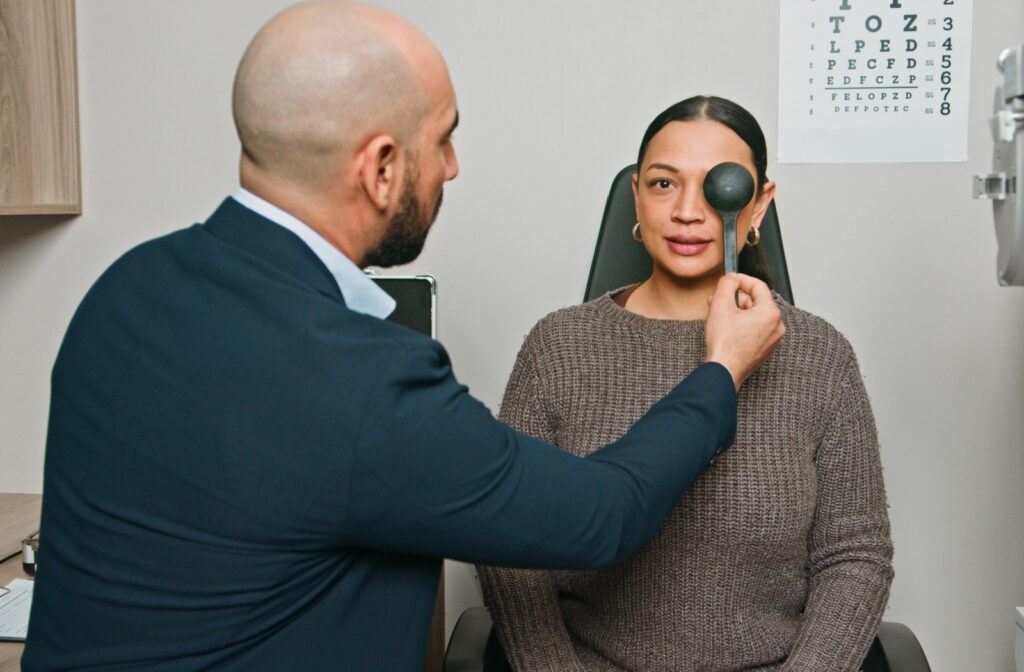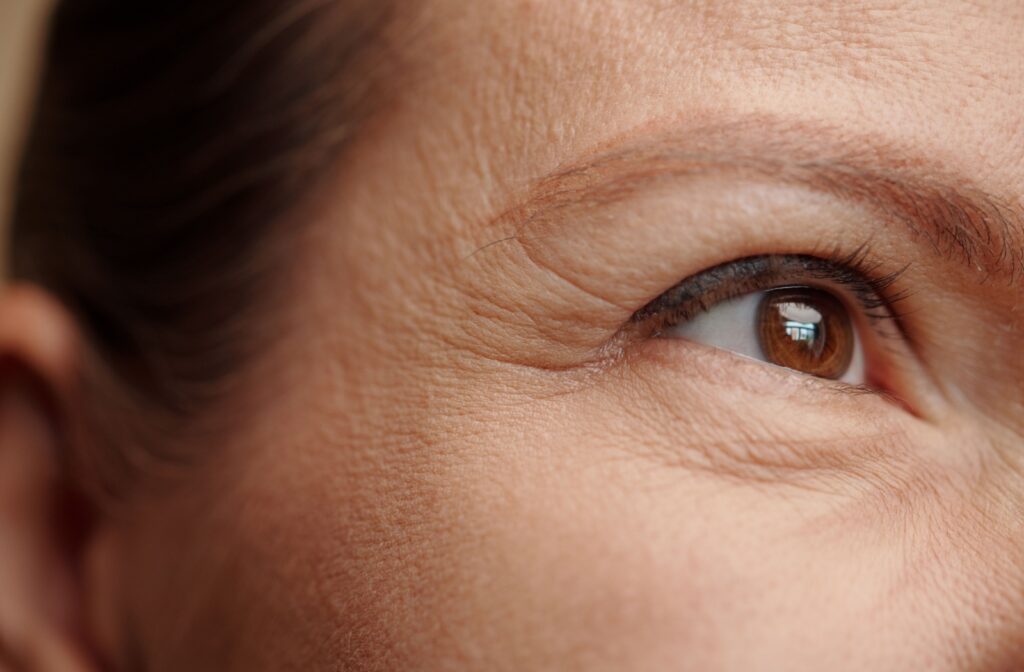Ocular disease refers to any condition that affects the health and function of your eyes, ranging from mild issues like dry eye to serious conditions such as glaucoma and macular degeneration. These diseases can impact your vision, eye comfort, and overall quality of life. Some are minor and treatable, while others can lead to permanent vision loss if not detected and managed early.
Understanding the different types of ocular diseases, their symptoms, and the importance of early detection can empower you to take control of your eye health.
What Are Ocular Diseases?
Ocular diseases are disorders or abnormalities affecting any part of the eye, including the cornea, retina, optic nerve, or lens. These conditions can develop due to aging, genetics, underlying health issues, or environmental factors.
Some eye diseases progress slowly, while others require urgent medical attention. Regular eye exams can help identify ocular diseases early, sometimes before symptoms become noticeable.
Who Is at Risk for Ocular Diseases?
While ocular diseases can affect anyone, some individuals may have a higher risk:
- Adults over 60
- Individuals with a family history of eye disease
- People with diabetes or hypertension
- Smokers
- Individuals with high sun exposure without eye protection
If you fall into any of these categories, scheduling regular comprehensive eye exams can help support your eye health.
How Are Ocular Diseases Diagnosed?
Eye care professionals use various tests to detect ocular diseases, including:
- Visual acuity tests to measure vision clarity
- Tonometry to measure eye pressure
- Dilated eye exams to examine the retina and optic nerve
- Optical coherence tomography (OCT) to capture detailed images of the retina
- Visual field tests to assess peripheral vision
Common Ocular Diseases
Cataracts
A cataract is clouding in the eye’s natural lens, which can cause blurry vision and difficulty seeing in low-light conditions. It is a typical age-related condition, but cataracts can also result from eye injuries, certain medications, or other health issues.
Symptoms of cataracts include:
- Cloudy or blurry vision
- Fading or yellowing of colors
- Difficulty seeing at night
- Sensitivity to light and glare
- Seeing halos around lights
In the early stages, stronger eyeglasses or brighter lighting can help improve vision. As the cataract progresses and interferes with daily activities, cataract surgery may be recommended. This procedure involves removing the cloudy lens and replacing it with a clear artificial lens.
Glaucoma
Glaucoma is a group of eye diseases that damage the optic nerve, often due to increased pressure in the eye. It is one of the leading causes of blindness, especially in older adults.
Symptoms of glaucoma:
- Gradual loss of peripheral vision
- Tunnel vision in advanced stages
- Severe eye pain (in cases of acute glaucoma)
- Blurred vision
- Nausea and vomiting (in acute cases)
Glaucoma cannot be cured, but early diagnosis and treatment can help slow its progression. Treatments may include prescription eye drops, oral medications, laser therapy, or surgery to reduce eye pressure.
Age-Related Macular Degeneration (AMD)
AMD is a condition that affects the macula, the part of the retina responsible for central vision. It is a leading cause of vision loss in people over 50.
Symptoms of AMD:
- Blurred or distorted central vision
- Difficulty recognizing faces
- Dark spots in the center of vision
- Trouble reading or seeing fine details
There is no cure for AMD, but treatments like anti-VEGF injections, laser therapy, and lifestyle changes can help slow progression. Nutritional supplements containing vitamins C and E, zinc, and lutein may also support eye health.
Diabetic Retinopathy
Diabetic retinopathy is a complication of diabetes that damages the blood vessels in the retina. It can lead to vision loss if not managed.
Symptoms of diabetic retinopathy:
- Blurred vision
- Fluctuating vision
- Dark spots or floaters
- Vision loss in advanced stages
Managing blood sugar levels is the primary way to prevent and slow the progression of diabetic retinopathy. Modern treatments include laser therapy, anti-VEGF injections, and vitrectomy surgery.
Dry Eye Disease
Dry eye disease occurs when your eyes do not produce enough tears or when the tears evaporate too quickly. It is a condition that can cause discomfort and vision issues.
- Stinging or burning sensation
- Redness
- Blurred vision
- Sensitivity to light
- A gritty feeling in the eyes
Over-the-counter artificial tears can sometimes provide relief for mild cases. More severe cases may require prescription eye drops, punctal plugs, or lifestyle changes to reduce environmental triggers.
Retinal Detachment
Retinal detachment is a serious condition where the retina pulls away from the back of the eye. It can lead to permanent vision loss if not treated promptly.
Symptoms of retinal detachment:
- Sudden appearance of floaters
- Flashes of light
- Shadow or curtain effect over vision
- Blurred or reduced vision
Retinal detachment requires emergency surgery. Procedures like pneumatic retinopexy, scleral buckle surgery, or vitrectomy may be able to reattach the retina and restore vision if treated quickly.

Why Early Detection Is Necessary
Many ocular diseases develop gradually and may not cause noticeable symptoms in their early stages. Routine eye exams help eye care professionals to detect issues early, often before vision loss occurs. Early intervention can:
- Slow disease progression
- Prevent vision loss
- Improve treatment outcomes
- Support overall eye health
Eye exams can also reveal signs of systemic health issues like diabetes, high blood pressure, and autoimmune disorders.
What Can You Do to Protect Your Eye Health?
Maintaining eye health involves a proactive approach:
- Get regular comprehensive eye exams
- Wear sunglasses with UV protection such as polarization
- Maintain a balanced diet rich in fruits, vegetables, and omega-3 fatty acids
- Avoid smoking tobacco and cannabis
- Manage underlying health conditions like diabetes and hypertension
- Take breaks during screen time to reduce eye strain
Take Charge of Your Eye Health at Total Vision
Ocular diseases can significantly impact your vision and quality of life, but early detection and proper treatment can help protect your eyesight. Understanding the symptoms of common eye conditions and prioritizing regular eye exams can help preserve and support your eye health.
If you experience eye discomfort or any changes in your vision, don’t wait—schedule an eye exam to receive the care you need.
Find an eye doctor in California near you to book an appointment with Total Vision today.



